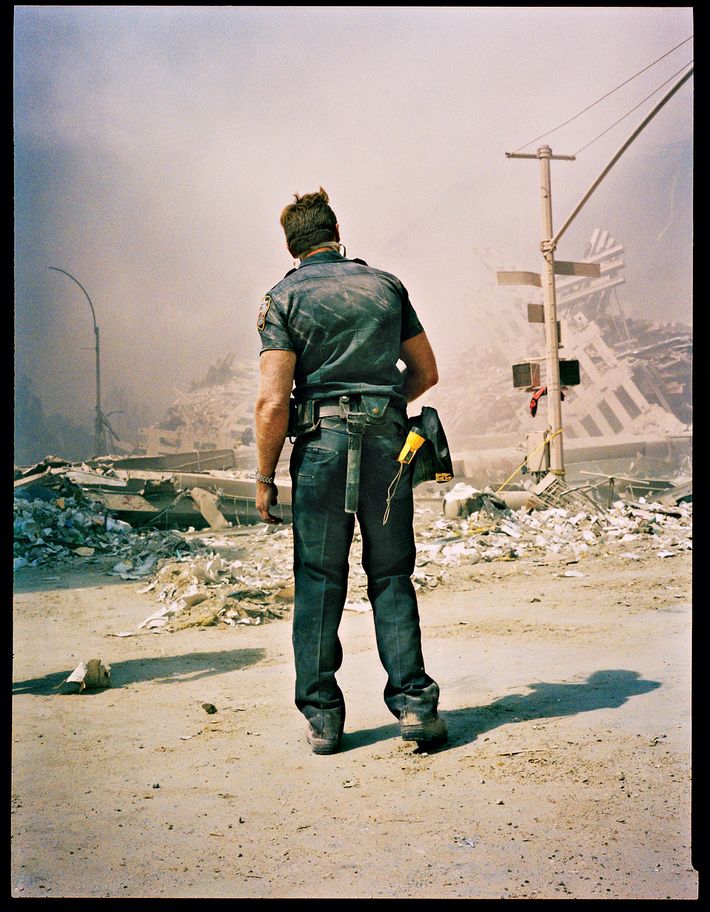On September 11 itself, the attacks needed no label.“The Towers,” “the planes”—all sufficed. Soonenough, that changed. The next morning in the NewYork Times, an op-ed piece by Bill Keller was titled“America’s Emergency Line: 9/11.” (When so many of us were thinking of firemen and cops, those three digits were doubly resonant.) The Washington Post’sHank Stuever, on September 13, made it explicit:“Consider the date, 9/11, which reads as 9-1-1, whichis keypad-speak for: Oh God no, help, please. Perhapsthe day could simply be called Nine One One.”
In the early weeks of coverage, the term appearedmore often in quotes than in newspapers’ own prose.That first month in the Times, the shorthand “September11” showed up just once, and “9/11” did notappear again. The more demotic New York Post publisheda quote on September 18 that may mark themoment when “9/11” began to slip into the vernacular:A rabbi said, “No one in our city remains untouched.September 11—9/11—has marked us forever.”On October 5, it showed up, straightforwardlyas we now use it, in a Chicago Tribune headline. WilliamSafire, in the Times, pointed out that “December7,” that previous date of infamy, had gradually becomeknown as simply “Pearl Harbor Day,” and wonderedwhether that might happen here.
It didn’t. Since then, the unornamented date hasbecome the default name for a horrifying event. TheLondon attacks of 2005 became 7/7. The Madrid attacksof 2004 became 3/11 (in the U.S., anyway; overthere, they’re 11/3, or 11 de marzo, or 11-M). It is adenatured, bloodless reference, which may be thepoint. It’s also ugly on the page: more license platethan word, a little too glib and telegraphic for somethingso monstrous. No matter. The hive mind madeits decision, and to whine about that is itself glib andinappropriate.

